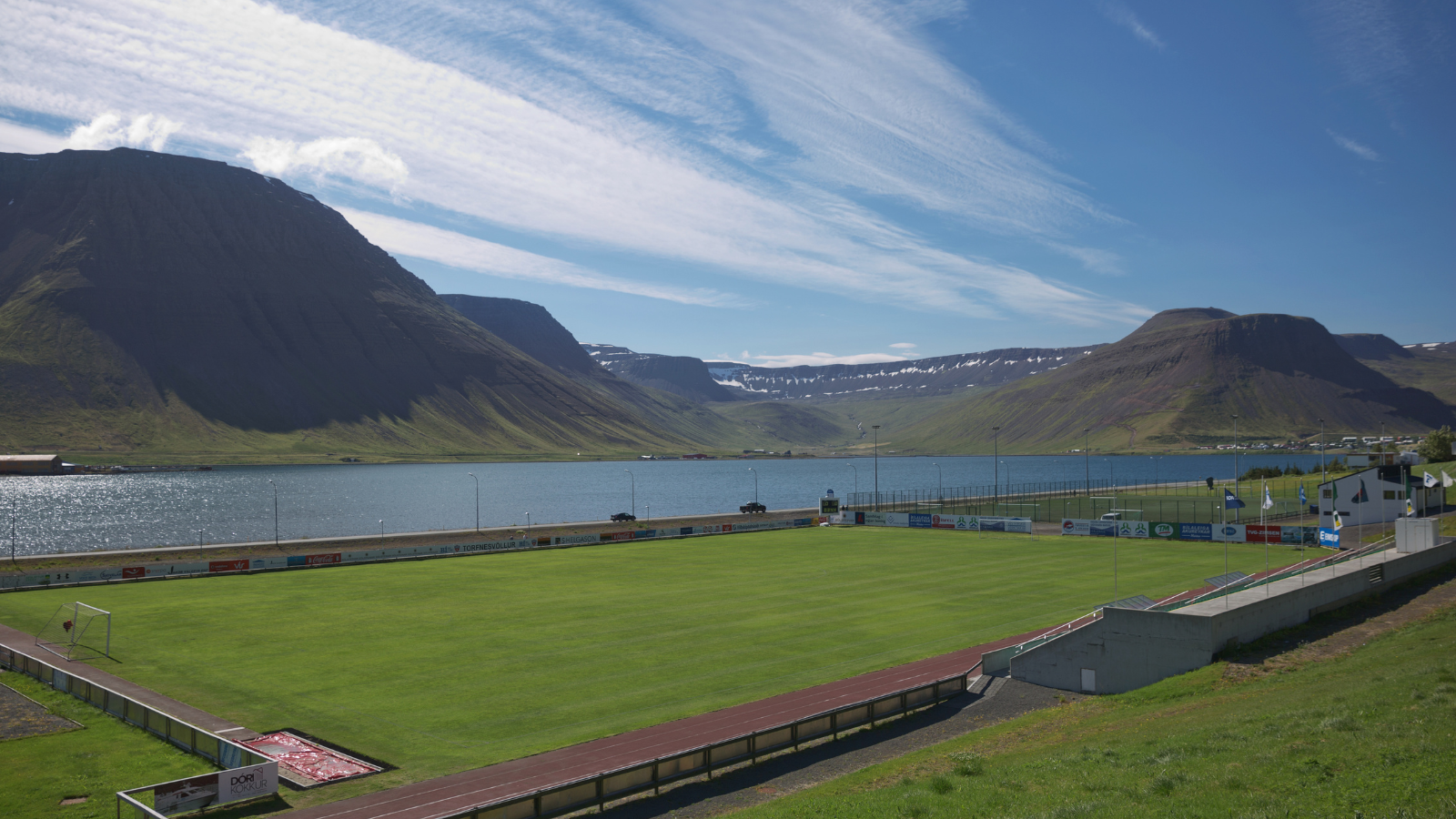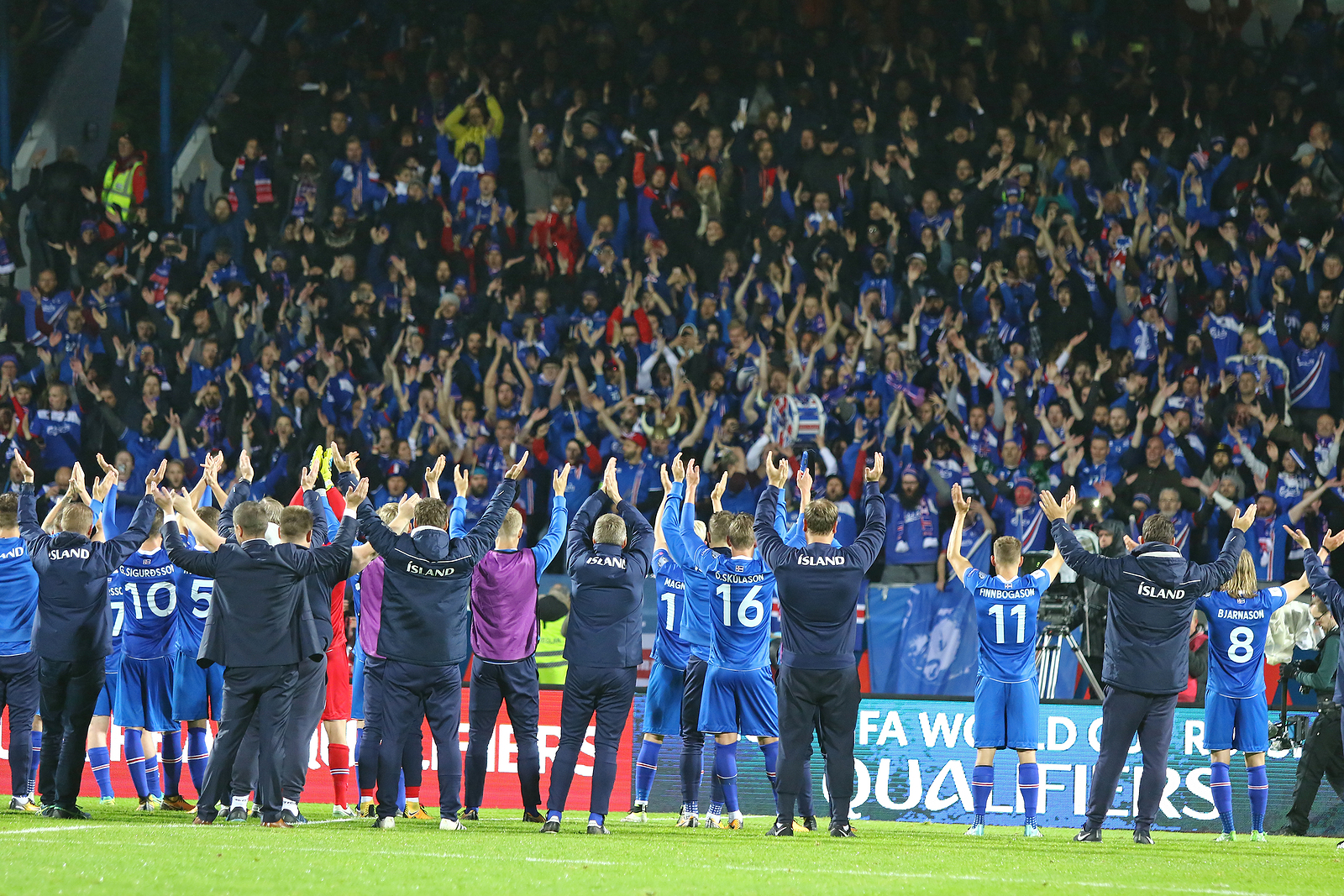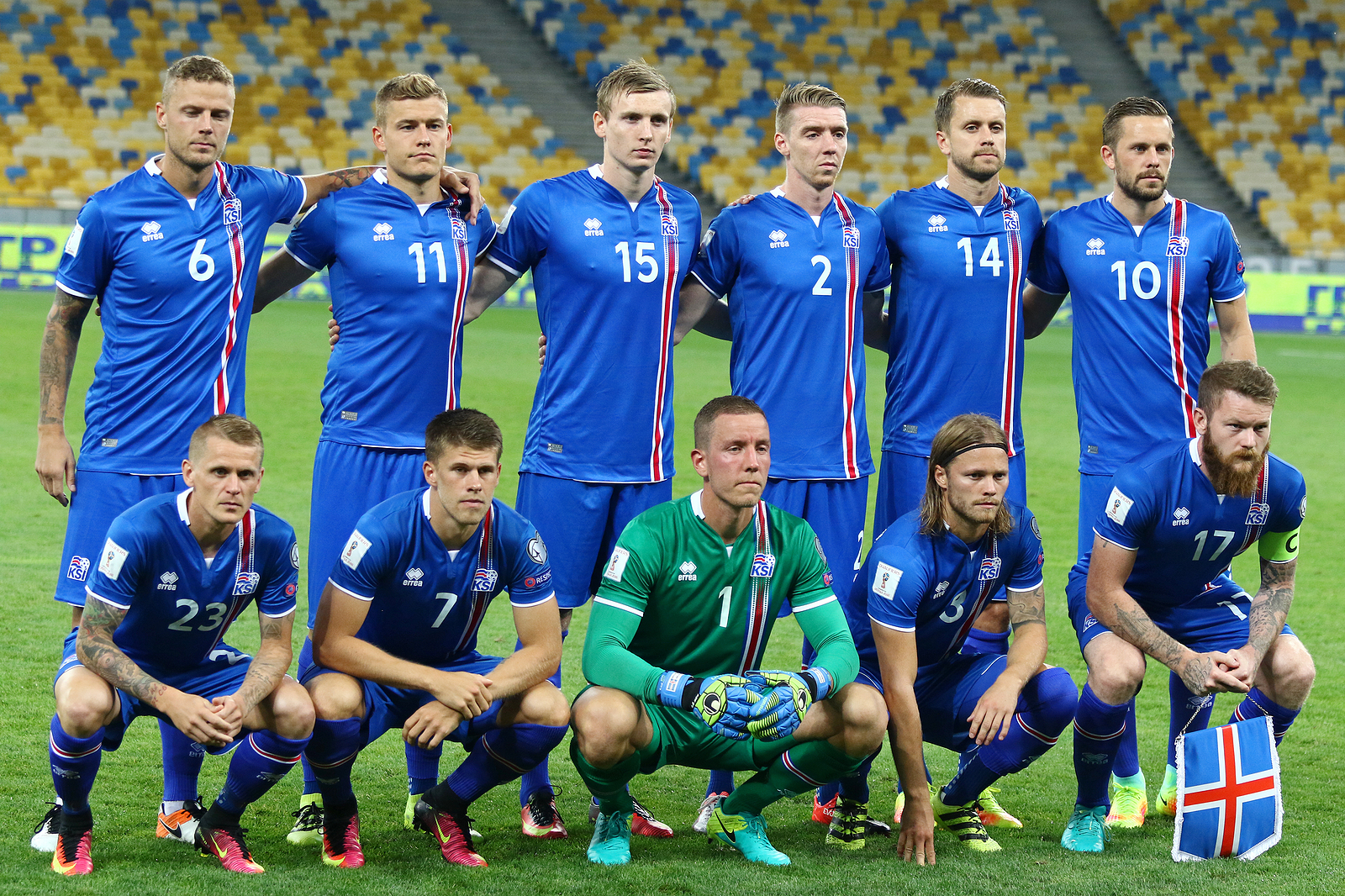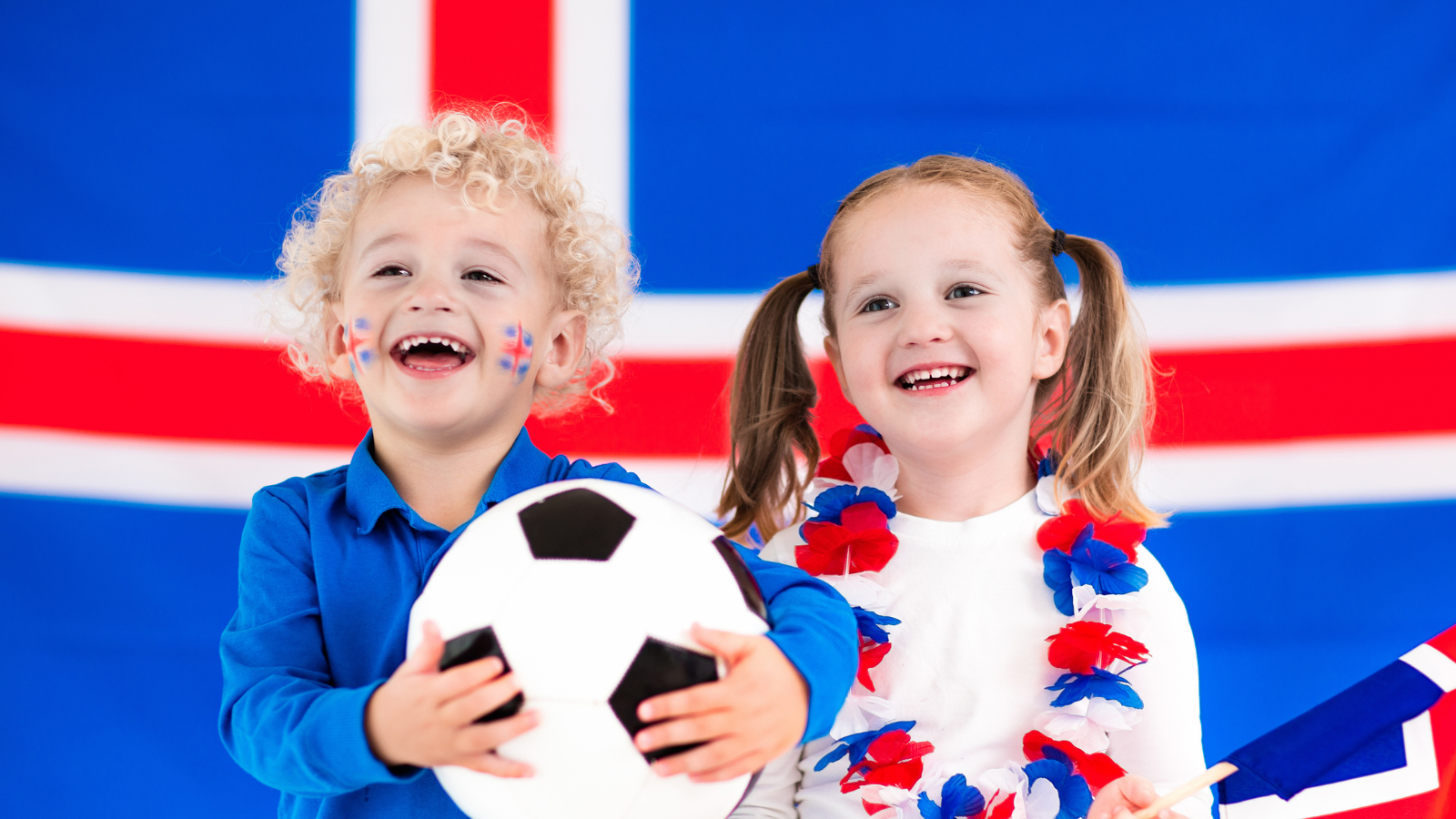This website uses cookies to help you browse on the website/ web. By using the website you agree on our policy on cookies.
Close
Our Guide to Football in Iceland
Football is the most popular sport in Iceland. Although football has a relatively short history in the country, football fervour has taken the country by storm after the improved rankings and performance of Iceland’s football teams.
The subarctic climate of Iceland which necessitated all-weather pitches for year-round play has been instrumental in shaping football culture in Iceland. In this blog, we have covered the varied aspects of football in Iceland to show what soccer looks like in this Nordic country.
Facts
If you’d like to know some facts about football in Iceland, here are some of the best ones.
- Iceland didn’t have indoor stadiums until 1965.
- Iceland is the smallest nation to qualify for the World Cup.
- Within six years, the men’s national football team in Iceland improved their world rankings from 131st to 19th!
- The Euro 2016 England vs Iceland was a turning point for football in Iceland with a win of 2-1.
- There is one professional coach for every 550 people in Iceland compared to 11,000 in the UK.

History of Football in Iceland
Football was introduced to Iceland by British sailors in the early 20th century. The first football club, KR Reykjavík, was established in 1899, and the first National Championship was held in 1912. Until 1929, competitions were held between three football clubs - KR Reykjavik, Fram Reykjavik, and Işlottabandarag Vestmannaeyja. Most football clubs were formed between the end of World War I and the 1920s.
The rugged landscape of Iceland hasn’t always been favourable to the sport. Nevertheless, Icelanders have utilised their resources well to battle Nordic climates, establish all-weather pitches, and develop the sport to their best capability. As a result, Icelanders have demonstrated remarkable performance in football, leading to the popularity of the sport in the country. The Knattspyrnusamband Íslands (KSÍ) or Football Association of Iceland has been instrumental in the development of football in Iceland.
Recently, Icelandic football has gained international popularity with the national team being nicknamed “The Viking Clap.” After its stellar performance in Euro 2016, Iceland made history by becoming the smallest nation to qualify for the World Cup. When you compare Iceland's population of under 400,000 to Trinidad’s 1.35 million, which was the next smallest country to qualify, the achievement is impressive!
The Football Association of Iceland (KSÍ)
Established in 1947, the Knattspyrnusamband Íslands (KSÍ) or Football Association of Iceland is the governing body for football in Iceland. From its headquarters in Reykjavík, the KSÍ has been providing support to football clubs and players of all levels. It manages the men’s and women’s national teams as well as the country’s major league, Úrvalsdeild karla.
The KSÍ is composed of multiple departments such as the coaching department, referee department, youth football department, etc. Each of them is responsible for a specific aspect of the sport. The KSÍ also organises the Icelandic Cup - a knockout tournament between teams at all levels of Icelandic football - whose winners qualify for the UEFA Europa League. Overall, the KSÍ plays a vital role in keeping football in Iceland up to the highest standard.

Football Competitions in Iceland
The first football competition in Iceland was held in 1912 when the National Championship, Úrvalsdeild Karla, was established. Each National Championship has an official sponsor and a predetermined number of competing clubs. Once the season is over, the clubs finishing at the top get relegated to a higher division, whereas the ones finishing at the bottom are moved to a lower division.
The highest level of Icelandic football is called Úrvalsdeild, meaning “Select Division.” The men’s team is called Urvarsdeird Kalra and the women’s team is known as Urvarsdeird Kvenna. At the end of the season, the club that finishes at the top of the league becomes the national champion.
The Icelandic Cup is another prominent football competition in Iceland. Established in 1960 and 1981 for men and women, respectively, the Icelandic Cup is held at the National Stadium Laugardalsvöller from May to October. The winner of the Men’s Cup qualifies for the UEFA Europa Conference League Qualifiers. The only difference with the Icelandic Women’s League Cup is that only the top six clubs from Vesta Deild Kvenna take part.
The winners of the Úrvalsdeild and the Icelandic Cup compete at the Men’s Super Cup and Women’s Super Cup, respectively. Since its establishment in 1969 and 1992, respectively, the Super Cup has been the starting game of the season. If the same team wins both the Úrvalsdeild and the Icelandic Cup, it will compete against the runners-up of the former at the Super Cup.
Football Clubs in Iceland
Iceland has a vibrant football scene with the sport’s development shaped by football clubs. The Icelandic Football League, Úrvalsdeild Karla or “The Pepsi Max League”, was formed in 1912, leading to the development of football clubs in the country. This Premier League in Iceland happens during the summer months of May to September.
With a rich history and loyal fan base, some of the major football clubs in Iceland are outlined below.
1. Valur
Established in 1911, Valur is one of the oldest football clubs in Iceland. So far it has won nine Icelandic Cups and 22 National Championships. It has its headquarters in Reykjavík and plays home games at the Vodafonevöllurinn stadium.
2. Keflavík
Keflavík is a prominent football club in Iceland with four National Championship victories. It was founded in 1929 in the town of Keflavík. Its home games take place in the Kaplakrikavöllur stadium.
3. Fram
Of all the football clubs in Iceland, Fram is one to look out for. Since its establishment in 1908, it has won six Icelandic Cups and seven National Championships. The headquarters of Fram are in Reykjavík and its home games take place at the Laugardalsvöllur stadium.
4. F.H.
Fimleikafélag Hafnarfjarðar (F.H.) is a powerhouse in Icelandic football. In addition to winning the National Championship six times, it went on a winning streak in the Premier League. It was established in 1929 in the port town of Hafnarfjörður and plays its home games at the Kaplakrikavöllur stadium.
5. ÍBV
Íþróttabandalag Vestmannaeyjar (ÍBV) was formed in Vestmannaeyjar, which is also known as the Westman Islands. It has had two National Championship wins and three Icelandic Cups consecutively since its founding in 1903. Its home games are at the Hásteinsvöllur stadium located on the scenic mountain island of Heimaey.
6. Knattspyrnufélag Reykjavíkur (KR)
The oldest and the most successful football club in the country is KR, with the team being the first-ever Icelandic representative in the European Cup. It was founded back in 1899 in Reykjavík and was the only football club in the city for 10 years before other clubs started to form. In 1912, the team won the first Besta deild karla championship before going on to win another 26 times throughout the team’s history.

Famous Football Players of Iceland
Iceland is quickly emerging as a football powerhouse in Europe. This is largely due to its skilled players who have gained international fame. Today, most Icelandic footballers feature in European and other major world leagues.
Here are the top five male football players in Iceland.
1. Gylfi Thor Sigurdsson
Gylfi Thor Sigurdsson is arguably the most famous football player in Iceland having made over 300 English Premier League appearances. Since making his international debut for Iceland in 2010, he has earned over 70 caps. At the 2016 UEFA Euro - Iceland’s first major tournament - Sigurdsson represented his country. He was a member of the Icelandic team in the 2018 FIFA World Cup in Russia.
Currently, Sigurdsson plays for the Everton Football Club, where he is one of the highest-paying players.
2. Kolbeinn Sigthorsson
One of the most popular football players in Iceland is Kolbeinn Sigthorsson. He has scored 26 goals for the national team so far, making him the highest national goal scorer of all time. He has made over 64 appearances for his country and even had offers from Real Madrid and Arsenal since his debut in 2006.
As of 2021, Sigthorsson is a member of IFK Goteborg.
3. Aron Gunnarsson
Aron Gunnarsson is the current captain of the national football team in Iceland. He has played for England’s Coventry City, and Cardiff City, where he was a runner-up in the 2012 Football League Cup Final.
Gunnarsson plays for Iceland internationally and has earned over 90 caps for his country since his debut.
4. Rurik Gislason
Rurik Gislason may be retired, but he remains an iconic figure in Icelandic football. He was a midfielder for the national team in his heyday. By 2018, Gislason became a household name after being named for Iceland’s 23-man squad for the Russia World Cup.
Gislason’s stellar performance against Argentina made him an Instagram celebrity after the 2018 World Cup.
5. Alfred Finnbogason
Iceland’s maiden goal at the 2018 FIFA World Cup was scored by Alfred Finnbogason making him immortal in Icelandic football history. He has played for seven different clubs amassing a total of 347 appearances and 167 goals.
Currently, Finnbogason plays for the Danish Superliga and has over 63 caps to date.
Women’s Football in Iceland
With football present in the grassroots of Iceland, boys and girls are equally encouraged and supported for their participation in the sport. In recent years, women’s football has become increasingly popular in Iceland after the excellent performance of the women’s national team. It ranked 15th consecutively for two years from 2015 to 2016.
There are two women’s football leagues in Iceland, both of which are overseen by the KSÍ. From talent identification programmes to skilled coaching, the KSÍ has taken a lot of initiatives to develop women’s football in Iceland.

Following Icelandic football can help you gauge the future of the sport. Not only are Icelanders fitness-oriented, but their inclusion in sports clubs at home includes the possibility of performance abroad. The experience of Icelandic football players Rúrik Gíslason and Aron Gunnarsson training in Iceland before playing internationally is inspirational.
From Viking history and Icelandic artists to climate change and sustainability, there’s much more to Icelandic culture than meets the eye. The best way to experience the vibrant culture of Iceland is to experience it first-hand. If you are planning a trip to Iceland, our rental cars will give you the ultimate Icelandic road trip experience!
Back